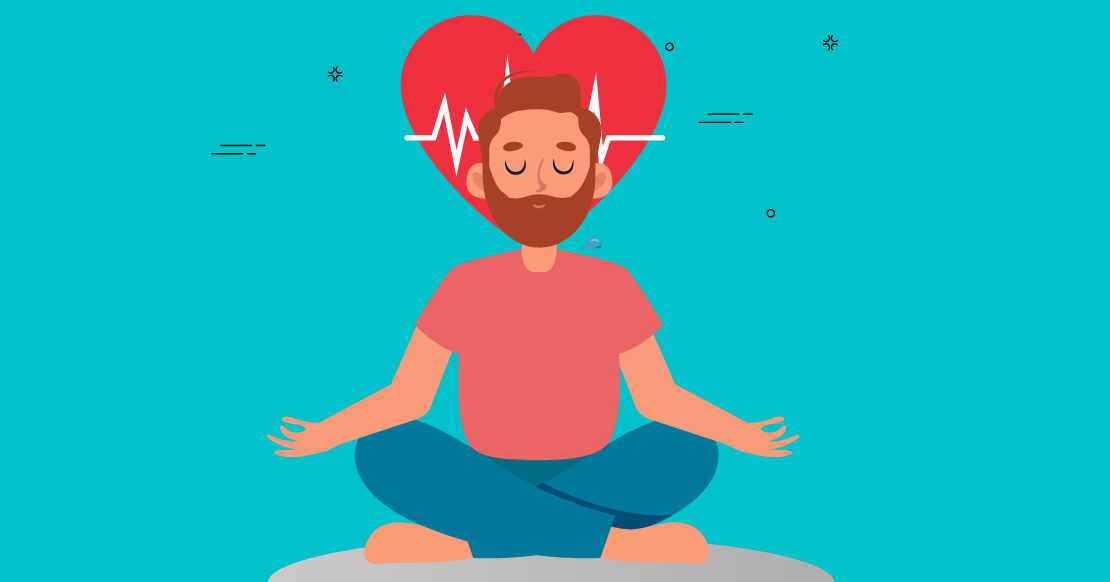Why is it so necessary to protect mental health?
According to the National Crime Record Bureau, India reported an average of 381 deaths by suicide daily in 2019.
Our health concerns are intertwined with our profession.
The Indian workforce is 400 million strong, constituting 39.1% of the total population of the country. The survey reveals that 50% of Indian employees burn out about an uncertain future, 40% of employees suffer financial backups, and 40% are afraid of carrier growth. Moreover, stress is considered a trigger factor for both mental and physical well-being by working professionals.
The psycho-social welfare amid this pandemic had raised the importance of mental health. This pandemic changed our lifestyle and affected our health adversely. The adversity includes lower production in small-scale industries, work from home, online classes, hectic work for health care workers, unemployment crisis, and people with mental health conditions experiencing even more social isolation. So, these transitions need a better way of adaptability for each and everyone in the world.
Therefore, a substantial increase in mental health and psychological support in the upcoming years can be expected, and it requires increased investment in psycho-social support.
Misconception myths to break
People are equipped with myths more than real because rumor is quick as a flash, but the practical facts about mental health are as slow as molasses. Here in this module, we will see the misconception and myths about mental health.
1. Myth: “Mental health problems are a sign of weakness”. Fact: The biggest misconception about mental health is that those who suffer from mental illness must be weak. Many people feel that they cannot express their concerns because of these myths. Favorably this mind-set has started to change over the past 20 years but, there is still a long way to go.
2. Myth: “Mental health problems are permanent”. Fact: A mental health diagnosis is not necessarily a “life sentence.” Each individual’s experience with mental illness is different. Some people might experience episodes, between which they return to their version of “normal.” Others may find treatments — medication or talking therapies — that restore balance to their lives. Some people may not feel as though they have fully recovered from a mental illness, and some may experience progressively worse symptoms. The journey to full recovery takes time, but positive changes can happen all along the way because mental illness is not about the cure but the ability to recover from what you suffer.
3. Myth: “All people with a mental illness are violent”. Fact: Some people with certain mental disturbances can indeed become violent and unpredictable, but they are in the minority. And not necessarily everyone who suffers from mental imbalances would behave violently.
4. Myth: “Therapy Traumatizes people more than helpful”. Fact: Therapy involves a detailed analysis of what you are and how you were. It helps to heal your illness, but the time taken to heal depends upon the person.
5. Myth: “A person who has had a mental illness can never be normal”. Fact: People with mental illnesses can, and do, recover to resume normal activities. For example, Jane Pauly, who has bipolar disorder, has received treatment and hosted her television show in addition to leading an enriched and accomplished life.
6. Myth: “Medications for mental illness are threatening”. Fact: If the medications are under the supervision of a mental health expert then the possibility of controlling mental health problems is high.
7. Myth: “Mentally Ill People Cannot Handle Everyday Responsibilities”. Fact: The thought that people with mental illnesses cannot complete work leads to systemic employing discrimination. While it is true that those with mental illnesses have additional hurdles to overcome, most can still function as well as those without mental illnesses. Unfortunately, the idea that mental illness equates to irresponsibility makes it harder for those who need help to find treatment.
8. Myth: “You’re either insane or you’re healthy”. Fact: Even people you would consider healthy are not always balanced. Think about it in terms of physical health. You can be an overall healthy person who still experiences joint pain or low Blood pressure. Similarly, you can have anxiety or bipolar disorder and yet be mentally healthy. While some people require extensive mental health programs, others can get through daily life more or less like everyone else.
Benefits of maintaining a balanced Mental Health:
• Reduce stress
• Clearer Thinking Process
• Reduction in anxiety
• A sense of contentment.
• A sense of meaning and purpose, in both their activities and their relationships.
• The flexibility to learn new skills and adapt to change.
• A balance between work and play, rest and activity, etc.
• A zest for living and the ability to laugh and have fun.
• The ability to deal with stress and bounce back from adversity.
• The ability to build and maintain fulfilling relationships.
• Self-confidence and high self-esteem.

Very nice post. I definitely love this website. Thanks!